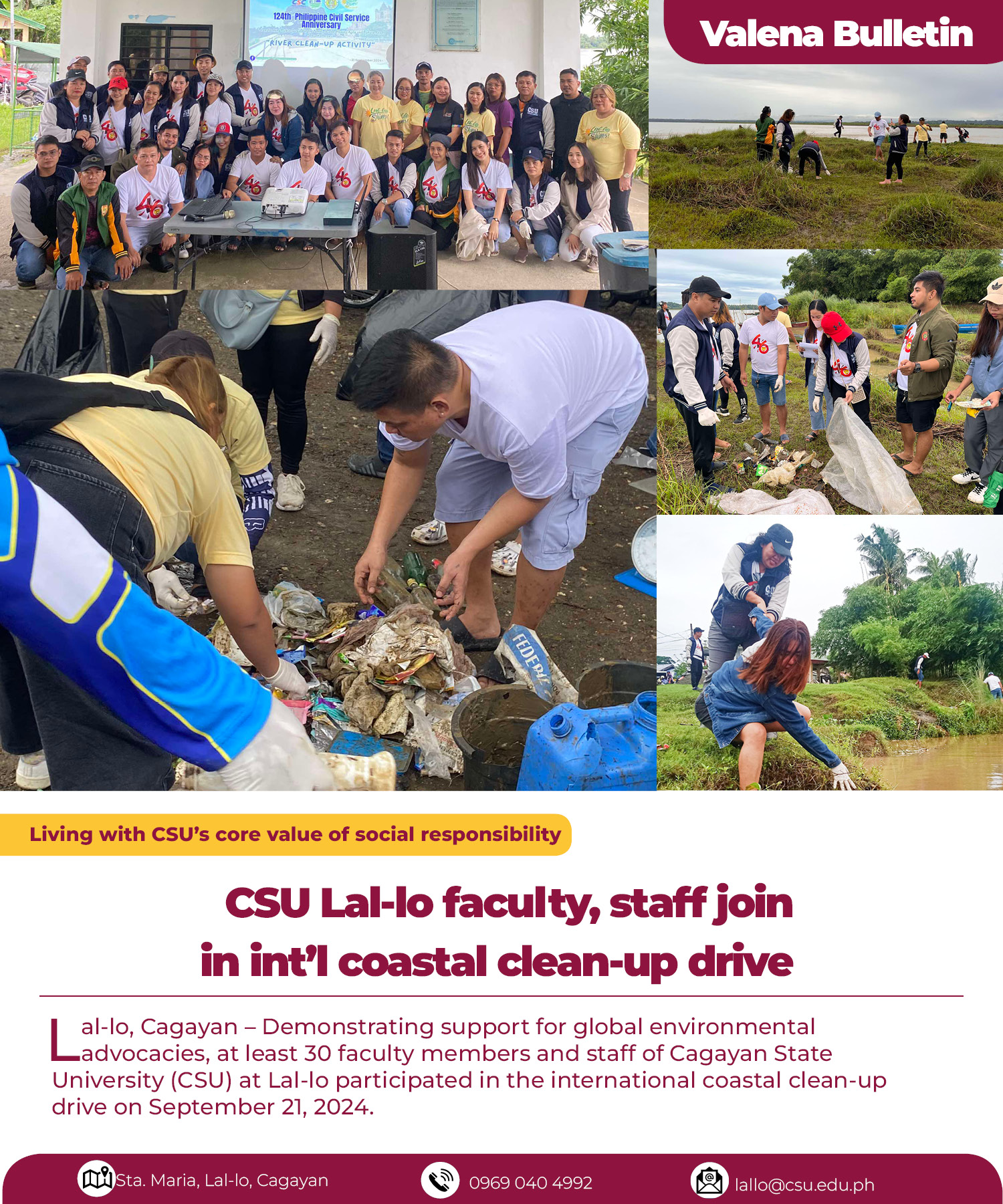Published September 21, 2024 by Jenerwin M. Columna

Lal-lo, Cagayan – Demonstrating support for global environmental advocacies, at least 30 faculty members and staff of Cagayan State University (CSU) at Lal-lo participated in the international coastal clean-up drive on September 21, 2024.
In collaboration with the Local Government Unit of Lal-lo, the faculty and staff helped in picking plastic trash along the riverbanks of Cagayan River specifically at Centro, Lal-lo, Cagayan.
Endorsed by the Civil Service Commission, the clean-up drive was part of the larger International Coastal Cleanup (ICC) effort organized by the Department of Environment and Natural Resources (DENR) across 250 coastal sites nationwide. The campaign aimed to raise awareness about the harmful effects of plastic pollution on marine ecosystems.
As the Philippines celebrates its 30th year of participating in the ICC, the DENR, as reported by the Philippine Star, recorded an increase in participation this year, with 74,075 volunteers from 1,913 government, academic, and private sector organizations, nearly doubling last year's figure of 35,000 volunteers.
As noted by the ICC Philippines Inc., Ocean Conservancy's International Coastal Cleanup (ICC) is the world's largest volunteer effort for ocean's health and is being conducted every third Saturday of September of each year participated by 150 countries.
In partnership with volunteer organizations and individuals around the globe, ICC engages people to remove trash from beaches, rivers, lakes and waterways and to identify and record trash/debris items collected in an Ocean Trash Data form.
It is reported that the Philippines has been a part of this initiative since 1994. In 2003, the government institutionalized the event by issuing Presidential Proclamation 470, declaring the third Saturday of September as ICC Day in the Philippines. This year’s coastal clean-up once again highlighted the importance of collective action in safeguarding marine environments for future generations.